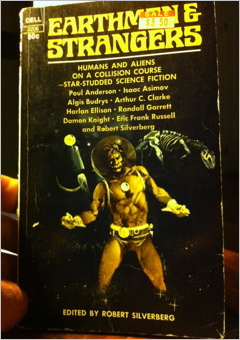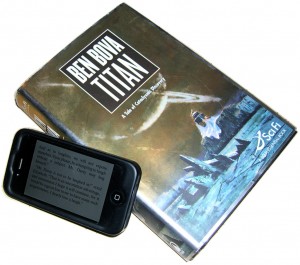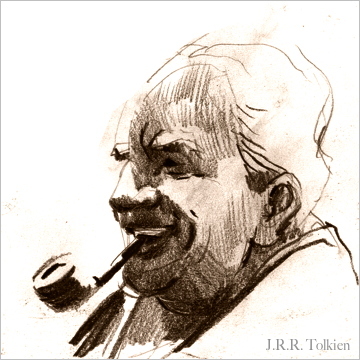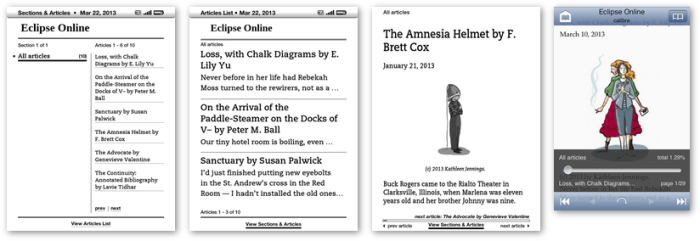Tag Archive: “books”
A Limerick, the Throne of the Crescent Moon, and Places in Fiction
Here’s a limerick about Throne of the Crescent Moon, the debut novel by Saladin Ahmed:
There was a wise man from Dhamsawaat
who lived with a boy who prayed and fought.
The man loved an old whore,
who deplored the ghul war,
and the boy met a girl who was not.
(With apologies to Zamia and Raseed for making light of their story – but I suspect Doctor Makhslood would embrace a harmless bit of impious doggerel!)
I enjoy stories with a strong sense of place.
Examples large and small come to mind: sordid New Crobuzon from China Miéville’s Perdido Street Station (not to mention the conjoined cities of The City & The City); Green Town, Illinois – distillate of gothic Americana that it is – from Bradbury’s Something Wicked This Way Comes; all of the burgeoning desert planet Arrakis from Frank Herbert’s Dune; and even Redwall Abbey from the Brian Jacques series of the same name.
Vivid impressions of these places root them in my memory.
I think that in the Crescent Moon Kingdoms – and especially the big, bustling, central city of Dhamsawaat – Ahmed may have created a similarly memorable setting. The main character Aduolla Makhslood is an expert ghul hunter and affable old fart who is all the more relatable for his relation to the places he inhabits: his favorite tea house, his run-down neighborhood, and his own dear home. So, as with the examples above, Aduolla’s world has become a part of mine.
(Links to related short stories…)
Posted on Saturday, July 20th, 2013. Tags: books, limerick, reviews.
Eclipse Online recipe
I made a Calibre recipe for Eclipse Online, a free short fiction magazine edited by Jonathan Strahan and hosted by Night Shade Books.
Like Strange Horizons, Eclipse Online is published only as a web site. This recipe assembles an ebook from recent posts and stories. Get more details and the script itself at Github.
Update: Sadly, only a month or so after I discovered Eclipse Online and wrote this recipe, the magazine was closed and will no longer be published.
Posted on Friday, March 22nd, 2013. Tags: books, code, recipe.
Calibre ebook cover art in Slideshow screen savers
The Mac OS X 10.8.3 update is out. Among the various minor fixes is this item:
Allows the Slideshow screen saver to display photos located in a subfolder
This restores the slideshow behavior from previous versions of Mac OS X; until now, it was inexplicably absent from Mountain Lion (10.8). Missing support for nested folders made it inconvenient to use photo collections organized in folders as the basis for screen savers.
Calibre organizes your ebook files, including cover images, in subfolders of a main library folder. So, now you can select your Calibre library folder as the source for a slideshow screen saver. (If you don’t know where your library folder is, you can re-open the Calibre Welcome Wizard to check the location, as pictured at left above.) The screen saver appears to ignore files that aren’t images, so the result is a slideshow of cover art from your ebook library. This works out nicely if, like me, your ebook library contains many magazine issues with great cover art.
Posted on Friday, March 15th, 2013. Tags: books, mac.
Pinboard bookmarks recipe for Calibre
Here is a script for Calibre which which retrieves your unread bookmarks from Pinboard and compiles them into an ebook. If you use Pinboard to save long articles to read later, and if you like to read long articles with an ereader instead of with your computer’s web browser, this may be the recipe for you. The script is called Pinboard.recipe and you can get it here: github.com/anoved/Pinboard-Recipe (see the Setup section to get started).
This is similar to the Safari Reading List recipe I wrote earlier this year.
Posted on Monday, December 10th, 2012. Tags: books, code, recipe.
Imperative Precautionary Haiku Reviews of the Stories in “Earthmen & Strangers”

I recently picked up a used copy of Earthmen and Strangers, a 1966 anthology of short stories edited by Robert Silverberg. As the cover attests, the book contains “humans and aliens on a collision course – star-studded science fiction.”
In 2010, I posted some haiku reviews of stories I’d recently read. I did some limericks as well. They were all very cheesy, but fun to write. Now I am reviving the gimmick with a new series of haiku reviews. In this post, there is an additional conceit – each bit is phrased as a vague sort of warning to some character or group in the story.
As before, it would be better to call these “synopses” or “selected impressions” instead of reviews. My intent is not to decree whether they have any literary merit, and certainly not to tell you what you should or should not read. In some cases, of course, I can’t help but comment on aspects that would seem out of place if these were written today. The haikus are just a fun record of what I’ve read. Hopefully they give you a taste of what I got from each tale.
Title and author links go to bibliographies at The Internet Speculative Fiction Database.
Dear Devil by Eric Frank Russel
Leave us your poets,
wise passers-by, for who else
might notice hope here.
A Martian artist lingers on ruined Earth, clumsily raising the remnants of humanity.
The Best Policy by Randall Garrett
Listen, my liars –
if cornered by creatures,
the truth will set you free.
Tactful answers to an alien polygraph avert invasion.
Wade among many,
emissary, but risk wanes
your identity.
Rugged individualists from earth make poor company for a little collectivist.
Stand up for yourselves,
women of hot shade and shell;
your men are not gods.
Stranded spacemen help the ignorant natives dispel an abusive cult and seek gender equity. Don’t worry, it’s not a white savior scenario: one of the men is Basque and the other Mohawk!
The Gentle Vultures by Isaac Asimov
Don’t be so hasty,
postwar planet beachcombers,
to assume our doom.
Opportunistic invaders are frustrated by our failure to destroy ourselves.
Stranger Station by Damon Knight
Question the motive
of the gift of elixir –
be tamed and changed by the ichor.
The new human occupant of a lonely trading post prepares for the periodic return of the other party.
I thought this was the most compelling story in the collection. Perhaps it is because the stranger is a truly alien presence: there are no little green men or translator hats here.2
The protagonist suffers from a desperate sense of anxiety and belated revelation as the alien approaches. His urgent effort to understand the purpose of the rendezvous – complicated by the calculated recalcitrance of his computer companion – convincingly depicts what it is like to confront the unknown.
Lower Than Angels by Algis Budrys
Patience, prospector,
lest your raw materials
make too much of you.
A small town sheriff is seduced by a victim’s widow.
Wait, wrong synopsis. This isn’t the NYT best seller list! Here we go:
A scout strives not to deceive the people he meets, but first impressions prove hard to shake.
Blind Lightning by Harlan Ellison
In case of capture,
give courage to your captor.
Release; death; rapture.
A disgraced scientist finds redemption by aiding his aggressor.
Out Of The Sun by Arthur C. Clarke
Behold, a last gasp
is glanced, like rippled glass,
as solar souls elapse.
Astronomers on Mercury see traces of something more than plain old radiation in the radar scans of a short-lived coronal mass ejection.
Some general criticisms:
-
All of the earthmen are exactly that: men. (Not counting the girls abducted to help restart society in Dear Devil.) Women: the greatest alien of all to the men of 1950s science fiction?
-
Many of these stories rely on an automatic communicator or translator device to facilitate dialogue between the titular earthmen and strangers. I think this makes the alien seem more like the merely foreign, with an attendant risk of portraying the aliens as little more than funny-colored people with weird cultures to figure out – or vice versa.
But, more generously, I recognize that the universal translator is a rhetorical device that helps a story advance beyond the mechanics of first contact to a “dialectical” phase where the story’s main ideas can be discussed directly by the characters themselves.
Last but not least, here are physical descriptions of some of the authors, as editor Robert Silverberg saw fit to include in his introductions to their stories:
- Eric Frank Russel is “a towering Englishman”
- Randall Garrett is “a bearded, booming-voiced man”
- Poul Anderson is “a lanky chap of Viking descent”
- Isaac Asimov is “jovial and even boisterous in the flesh”
- Damon Knight is “a slender, soft-spoken man with a deceptively mild smile”
- Algis Budrys “has the general dimensions of an outstanding fullback”
Posted on Wednesday, October 10th, 2012. Tags: art, books, haiku, reviews.
McCalibre: Multi-Column Stylesheet for the Calibre Ebook Viewer
I use Calibre primarily to organize ebook files and send them to my Kindle, but it also includes a serviceable ebook viewer for reading books on the computer. Like most ebook renderers, the viewer is based on a web browser. The user can even specify their own stylesheet to customize exactly how the text is displayed.
I created a stylesheet which displays the text in multiple columns, like McReadability. I dub it McCalibre. I posted the code and a more thorough description on the Calibre forums. As noted in the forum post, it only works with the viewer’s “flow” mode, not the “paged” mode. Here’s what it looks like:
I’ve also posted the code at GitHub, where I will upload any worthwhile revisions.
Posted on Wednesday, September 26th, 2012. Tags: books.
Interleaved Reading

Typically I only read one novel at a time. At present, however, I am reading Ben Bova’s Titan as well as Jane Austen’s Pride and Prejudice. These novels are sufficiently distinct that I don’t think I’ll have any trouble keeping the stories straight – although both are certainly set in alien environments. Fortuitously, both books have short chapters, making it feasible to alternate between them whenever I sit down to read.
My hope was that these books would complement each other as part of a balanced fictional diet. Titan has big ideas and a technically intriguing setting, but, admittedly, its characters perform like cardboard character actors (a risk of its subjective yet superficial third-person perspective, I suppose). An exception is Titan Alpha, the rover whose misbehavior is the most interesting enigma I’ve encountered in the story. Titan Alpha is a viewpoint character.
I like it when a character cracks a joke and it still seems fresh despite the knickers and two hundred year old diction.
Pride and Prejudice portrays people with much more nuance, although they are all perhaps a bit too snooty to earn much sympathy from me. (I realize that this impression may well be intentional, given the title.) What I like most about Pride and Prejudice is the language – the sentences themselves exhibit a variety of structure that is a pleasure to unravel, yet never too baroque to understand. I like it when a character cracks a joke and it still seems fresh despite the knickers and two hundred year old diction. Whether it is Austen’s own style or simply English of the era that I enjoy, I cannot say.
I’m only about a quarter of the way through each book, so the impressions above shouldn’t be construed as final reviews. Mainly, my intent is to compare what I’ve noticed in the process of alternating between books.
So, do you ever select books based on what you perceive to be their complementary properties? Are you a gourmet, seasoning your reads with sweet and sour, or is your mind a furnace into which you must shovel as many ideas and experiences and as possible?
Posted on Tuesday, September 18th, 2012. Tags: books.
Paying Attention to Point of View
Last month, SF Signal published a two–part “mind meld” on point of view in fiction. Earlier this year, the folks at Writing Excuses discussed the omniscient viewpoint. I encountered all of these discussions recently, and it got me thinking about point of view. At first I found it challenging to recall the perspective of books I’d previously read, even if they were among my favorites. With concentration, however, I realize I can figure it out for most examples that come to mind.
(Sometimes it’s obvious. It’s a good bet that stories with large ensemble casts – like The Song of Ice and Fire, to name a popular example – are told from a third person perspective that can follow the separate adventures of multiple characters.)
Conflicts are revealed from multiple perspectives; tension arises from wondering how these perspectives will converge – or collide.
In contrast to my fuzzy recollection of the narrative perspective of some past reads, I feel acutely aware of point of view now that I’ve encountered the discussions mentioned above. I am reading Ben Bova’s Titan, and the third person perspective seems conspicuous. Conflicts are revealed from multiple perspectives; tension arises from wondering how these perspectives will converge – or collide. The plot becomes an almost secondary source of suspense.
I can’t say that I prefer one perspective over another (well, second person perspective sure is an odd duck1), but I do think it enriches the reading experience to better understand how a story is told. There’s a parallel with science here: knowledge does not sap a system of wonder, but rather equips you recognize and appreciate its even deeper mysteries.
- To read a fascinating visual analysis of the “Choose Your Own Adventure” format, you decide to check out Christian Swinehart’s One Book, Many Readings.
Posted on Tuesday, September 11th, 2012. Tags: books, sf, sfsignal, writingexcuses.
Thinking Critically About Tolkien
 The works of J.R.R. Tolkien have had a tremendous impact on fantasy fiction and, arguably, on popular culture. Renowned for the scope and rigor of its conception, Tolkien’s Middle Earth is familiar to many as an exemplar of the fully-imagined secondary world, replete with language, history, and a complex mythological (if not moral) landscape. World-building of such detail provides a potentially powerful framework for fascinating story-telling – and indeed, the epic quest of the Fellowship of the Ring set the mold for generations of subsequent adventure stories.
The works of J.R.R. Tolkien have had a tremendous impact on fantasy fiction and, arguably, on popular culture. Renowned for the scope and rigor of its conception, Tolkien’s Middle Earth is familiar to many as an exemplar of the fully-imagined secondary world, replete with language, history, and a complex mythological (if not moral) landscape. World-building of such detail provides a potentially powerful framework for fascinating story-telling – and indeed, the epic quest of the Fellowship of the Ring set the mold for generations of subsequent adventure stories.
Yet for all its influence and entertainment value, The Lord of the Rings is not beyond critique. Here I would like to share a few thought-provoking criticisms from other authors I respect. My intent is not to negate your enjoyment of Tolkien, but to enrich the way you think about what you read and how it relates to the “real world” in which you live. That, at least, is the impact these ideas have had on me.
The quotes I’d like to relay share a concern with the worldview and political structure evident in the quasi-medieval culture of Middle Earth. Plots are driven by conflict and conflicts can reasonably emerge from the social environment characters occupy. It is not necessarily the society of Middle Earth itself that these authors object to, I think, but the way in which Tolkien aligns thematic elements of good and evil – of propriety and upheaval – with elements of that setting.
 Consider Fantasy and revolution: an interview with China Miéville, conducted by John Newsinger, from the autumn 2000 issue of International Socialism Journal. Miéville is an author closely associated with the “New Weird” and a vocal observer of real-world social issues. Here, he fingers Tolkien’s romanticization of feudalism, a recurring theme in fantasy criticism:
Consider Fantasy and revolution: an interview with China Miéville, conducted by John Newsinger, from the autumn 2000 issue of International Socialism Journal. Miéville is an author closely associated with the “New Weird” and a vocal observer of real-world social issues. Here, he fingers Tolkien’s romanticization of feudalism, a recurring theme in fantasy criticism:
If you look at stereotypical ‘epic’ or ‘high’ fantasy, you’re talking about a genre set in magical worlds with some pretty vile ideas. They tend to be based on feudalism lite: the idea, for example, that if there’s a problem with the ruler of the kingdom it’s because he’s a bad king, as opposed to a king.
In a January 2002 Socialist Review article titled Tolkien – Middle Earth Meets England, Miéville elaborates on the problem of simplistically categorizing characters as good or bad:
Tolkien wrote the seminal text for fantasy where morality is absolute, and political complexities conveniently evaporate. Battles are glorious and death is noble. The good look the part, and the evil are ugly. Elves are natural aristos, hobbits are the salt of the earth, and – in a fairyland version of genetic determinism – orcs are shits by birth. This is a conservative hymn to order and reason – to the status quo.
And all dwarves love gold!
Miéville does temper his critique. He has kind things to say about the Lord of the Rings movies (then just released) – “Jackson beefs up Tolkien’s rizla-thin women, turning them into actual characters” – and even admits admiration for aspects of the original:
it would be churlish to claim that there’s nothing to admire in the book. The constant atmosphere of melancholy is intriguing. There are superb, genuinely frightening monsters, and set pieces of real power.
But the bottom line is clear. Miéville admires the world-building, and embraces the inventive modes of story-telling possible with fantasy, but feels let down by the direction of Tolkien’s vision:
He established a form full of possibilities and ripe for experimentation, but used it to present trite, nostalgic daydreams. The myth of an idyllic past is not oppositional to capitalism, but consolation for it. Troubled by the world? Close your eyes and think of Middle Earth.
China dismisses most charges of escapism as genre snobbery – “just because [non-genre] books pretend to be about ‘the real world’ doesn’t mean they reverberate in it with more integrity” (ISJ) – but, ultimately, faults Tolkien for exactly that – escapism. Or, more accurately, for making too little of the liberating opportunities afforded by literary escape.
 Next I’d like to recommend J.R.R. Tolkien vs. The Modern Age, a 2002 essay by David Brin. Only an excerpt is available online, but the full text can be found in Through Stranger Eyes, an interesting collection of essays, reviews, and other non-fiction by Brin.
Next I’d like to recommend J.R.R. Tolkien vs. The Modern Age, a 2002 essay by David Brin. Only an excerpt is available online, but the full text can be found in Through Stranger Eyes, an interesting collection of essays, reviews, and other non-fiction by Brin.
Brin’s critique affirms Miéville’s concern with the backwards-looking undercurrents of The Lord of the Rings. He extends this argument and situates it in historical context with a comparison of Romanticism and Enlightenment ideals.
He also asks the unsettling question of whether fantasy fans may, somehow, develop a misplaced fondness for the archaic social order familiar to their favorite characters:
Indeed, the popularity of this formula [LOTR’s] is deeply thought-provoking. Millions of people who live in a time of genuine miracles – in which the great-grandchildren of illiterate peasants may routinely fly through the sky, roam the Internet, view far-off worlds and elect their own leaders – slip into delighted wonder at the notion of a wizard hitchhiking a ride from an eagle. Many even find themselves yearning for a society of towering lords and loyal, kowtowing vassals.
I don’t think I’ve ever yearned for that, but I certainly root for the good guys to crush the bad. That’s almost instinctive. Brin wonders: what does this moral partitioning reinforce in our own worldview when used for dramatic effect in fiction? The device is hardly unique to The Lord of the Rings, of course, but once more the hapless orcs serve as an example:
The urge to crush some demonized enemy resonates deeply within us, dating from ages far earlier than feudalism. Hence, the vicarious thrill we feel over the slaughter of orc foot soldiers at Helm’s Deep. Then again as Ents flatten even more goblin grunts at Saruman’s citadel, taking no prisoners, never sparing a thought for all the orphaned orclings and grieving widorcs. And again at Minas Tirith, and again at the Gondor Docks and again… well, they’re only orcs, after all.
There is a strain of dismay with industrialization in Tolkien’s work. This is understandable, considering the threat mechanization poses to traditional Shire-like lifestyles –
the good guys strive to preserve and restore as much as they can of an older, graceful and ‘natural’ hierarchy, against the disturbing, quasi-industrial and vaguely technological ambience of Mordor, with its smokestack imagery and manufactured power-rings that can be used by anybody
– but Brin offers a compelling rebuttal to Tolkien’s tactic of nostalgic withdrawal:
The planet was certainly less abused when our numbers were kept low by poverty, starvation and disease. Now we must replace those old corrective forces with new ones – knowledge, foresight, and self-restraint.
So say we all.
•
I think it’s charming that Miéville, an avowed “active revolutionary socialist”, and Brin, a champion of the Enlightenment tradition and pragmatic American know-how, find so much common ground in their critical readings of Tolkien – and also in their use and espousal of the fantastic and the futuristic as lenses to perceive our path through the present.
•
I hope you agree with my initial assurance that the critiques I’ve shared here do little to detract from the stories they dissect. If this post has exposed you to any new ideas, or nudged you to consider what you expect from fiction, or perhaps even caused you to articulate a rebuttal of your own against any of the charges recounted here, then I consider it a success.
I do not think the quotes I’ve selected do justice to each author’s arguments (least of all Tolkien’s), so please consider reading the source materials in their entirety. If you haven’t read The Lord of the Rings, start with that!
For Tolkien criticism of a different sort – more reverential, perhaps, but rife with insight into the structure and function of fiction – check out Corey Olsen’s extensive Tolkien Professor podcasts.
Posted on Thursday, March 15th, 2012. Tags: books, reviews.







